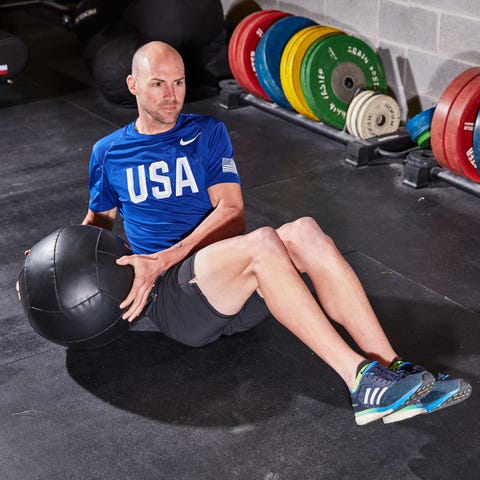
Deby SuchaeriGetty Images
- Regular physical activity, like running, can lessen the effects of menopausal hormonal changes, new research finds.
- Although shifts associated with menopause tend to affect women over age 50 the most, metabolic changes can start much earlier, which means the current research may not apply only to women in midlife or older—it may even apply to women in their mid-30s or 40s.
Regular physical activity, like running, has already been praised for its benefits to older women—one study noted that exercising seems to be the only noncontroversial treatment for menopausal symptoms—and a new study in the International Journal of Obesity details what makes it so powerful.
Researchers recruited 298 women aged 48 to 55 and followed them over nearly four years to determine the effects of their menopausal hormonal changes. All of them experienced some level of decline in metabolic health, which is made up five factors: waist circumference, blood pressure, blood sugar levels, cholesterol, and triglycerides.
However, participants who were more active in the study’s timeframe showed slower changes in these indicators, particularly in terms of blood pressure, abdominal fat accumulation—which itself is considered a heart health risk—and cholesterol. That doesn’t mean exercise stopped the changes altogether, but it did tend to improve blood lipid profiles and body composition.
Metabolic health naturally deteriorates with aging for both men and women, so understanding what can mitigate this process is important for healthy aging, according to study co-author Hanna-Kaarina Juppi, Ph.D.(c), a doctoral student in the Faculty of Sport and Health Sciences at the University of Jyväskylä in Finland.
“Because our study followed women of a similar age over time, we were able to see the changes that came with their metabolic health and how physical activity affected that,” she told Runner’s World.
Although it wasn’t part of this study, Juppi has done previous research on menopause’s effects related to muscle mass and strength, and again, found that age-related changes to both might be mitigated with regular exercise.
Although shifts associated with menopause tend to affect women over age 50 the most, metabolic changes can start much earlier, which means the current research may not apply only to women in midlife or older.
The period of perimenopause, when the level of estrogen rises and falls unevenly, often starts in your 40s, but for some women, this process may begin in their mid-30s. Whenever it kicks off, so do metabolic risks, and research indicates that’s particularly true with heart health.
That makes regular exercise not only prescriptive for women with metabolic issues, but also preventive when it comes to reducing the risks that come with the menopausal transition.
“It’s possible that significant increases in physical activity may be needed as women enter menopause,” said Juppi. “But it’s also important to highlight the importance of activity in the early prevention of hypertension and cardiovascular disease, which both increase as we age.”
So keep on running, strength training, and doing your other favorite cross-training activities—you’ll do your metabolic health a huge favor down the line.
This content is created and maintained by a third party, and imported onto this page to help users provide their email addresses. You may be able to find more information about this and similar content at piano.io



